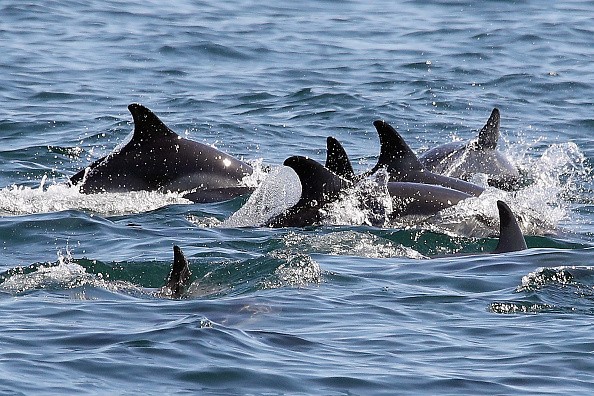Even the most ardent supporters of traditional whaling in the Faroe Islands have condemned the "cruel and unnecessary" slaughter of a superpod of nearly 1,500 dolphins on Sunday, which was herded into shallow waters off Skálabotnur beach on the island of Eysturoy and left to writhe for hours before being slaughtered.

The Sea Shepherd conservation organization, which has been campaigning to end the traditional Faroese "Grind" hunt since the 1980s, claims that Sunday's hunt was "the largest single killing of dolphins or pilot whales in the islands' history," with more animals killed than in an entire season at the infamous "Cove" in Taiji, Japan.
However, this time, the slaughter was so immense that even many Faroese, who considered the hunt a part of their traditional history, voiced displeasure.
Locals Voicing Displeasure
One commenter on the local broadcaster Kringvarp Froya's Facebook page remarked, "I get nauseated witnessing this type of stuff," while another called the slaughter "full-on awful" and said, "I'm embarrassed to be Faroese."
Heri Petersen, who leads the local Grind hunting club in the area where the slaughter occurred, claimed that far too many dolphins had been brought into the bay over an excessively long distance, with far too few persons waiting on the beach to kill them, prolonging their misery.
He told the local In.fo news site, "I'm shocked by what occurred." "The dolphins writhed on the shore for far too long before being slaughtered."
Related Article : Deadly Virus Detected in Hawaiian Dolphin May Trigger Global Outbreak Amongst Marine Animals
Dolphin Hunt
The Grind is significant for many Faroese people, with onlookers flocking to the beach to watch and the meat from the catch typically divided among the participating families, with any surplus distributed to residents.
However, one resident told the Danish daily Ekstra Bladet that people would never want to eat this much dolphin flesh.
"I expect the majority of the dolphins will end up in the trash or a hole in the ground," they said. "Quotas should be set for each region, and dolphins should not be killed."
Captain Alex Cornelissen, the worldwide chief executive of Sea Shepherd, which fights against whaling, said it was "simply awful to witness an attack on nature on this scale in the Faroe Islands" in the middle of a global epidemic.
Whaling and Dolphin Hunting on the Modern World

The dolphin drive hunt involves herding dolphins and other small cetaceans into a narrow bay, where they are slaughtered or caught for their flesh, which is then sold to dolphinariums. Taiji has a lengthy history of whaling in Japan.
However, despite its historical significance, conservationists say that just because something has been done for generations does not imply that people should continue it. Many traditional methods have been phased out and are now deemed cruel by modern standards.
Read also: Dead Dolphins, Turtles Are Washing Ashore in Sri Lanka: Could the Cargo Ship Fire be Blamed?
For more animal, don't forget to follow Nature World News!
© 2025 NatureWorldNews.com All rights reserved. Do not reproduce without permission.





